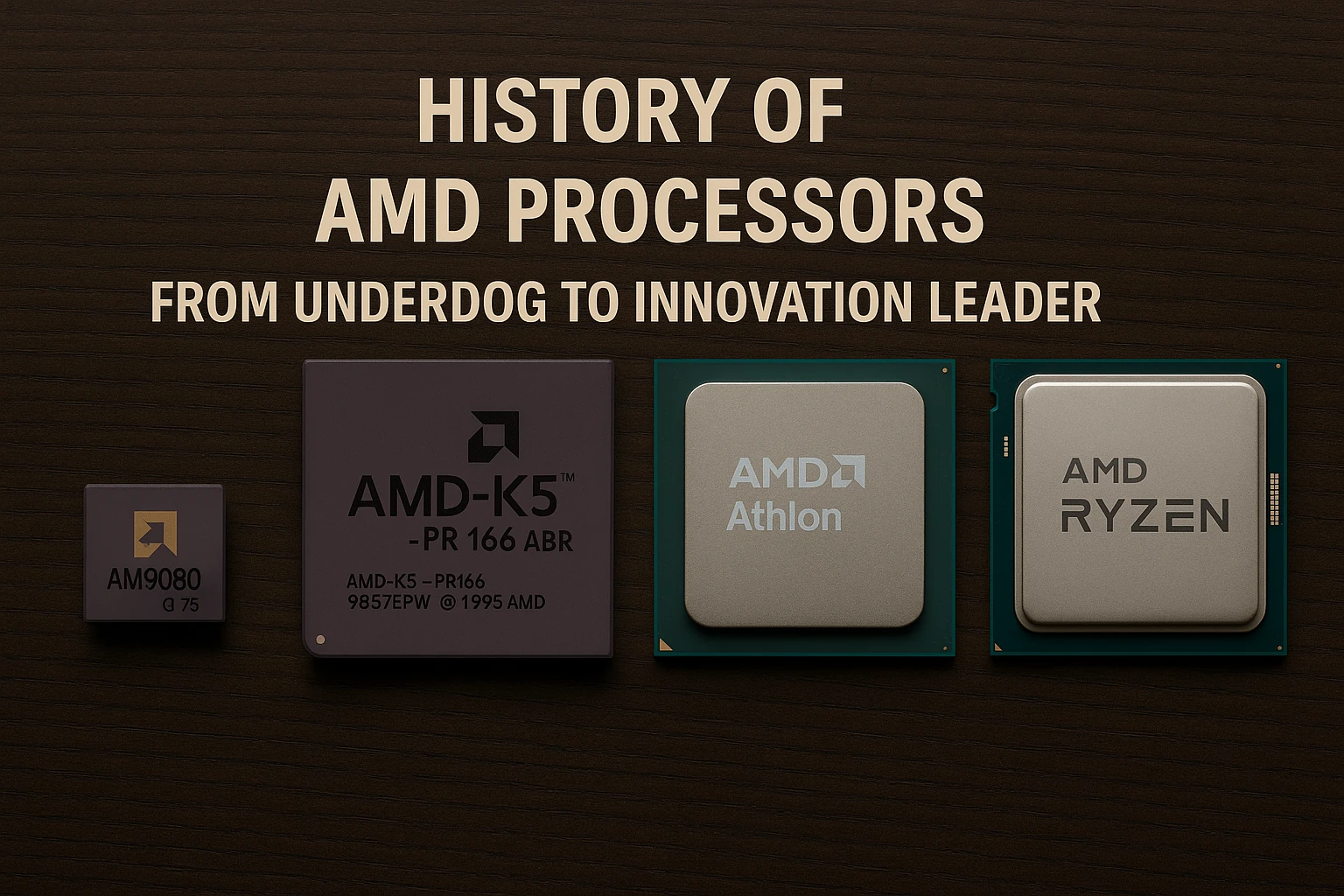History of AMD Processors - From Underdog to Innovation Leader
Introduction
Advanced Micro Devices (AMD), founded in 1969, has grown from being Intel's underdog to becoming a leader in processor innovation. This article explores AMD's journey through key milestones that shaped modern computing.

1. Early Days: 1970s-1980s
AMD Am2900 (1975)
- Bit-slice processor family
- Used in minicomputers and early workstations
- Established AMD as a serious semiconductor company
Reverse-Engineered 8086 (1982)
- Legal clone of Intel's 8086
- First x86-compatible processor from AMD
- Began long-standing x86 architecture rivalry
2. The Clone Wars: 1990s
Am386 (1991)
- First independently designed x86 CPU
- 32-bit architecture like Intel 80386
- Superior performance at lower cost
Am486 (1993)
- Fully pipelined design
- Outperformed Intel's 486 at same clock speeds
- Gained significant market share
3. Original Architectures: Late 1990s-2000s
K5 (1996)
- First completely original AMD design
- RISC-like internal architecture
- Performance issues initially
Athlon (1999)
- First seventh-generation x86 processor
- Beat Intel Pentium III in performance
- Introduced EV6 bus (200MHz vs Intel's 133MHz)
Athlon 64 (2003)
- First 64-bit consumer processor
- Integrated memory controller
- Introduced AMD64 instruction set (still used today)
4. Challenges and Comebacks: 2006-2016
Phenom (2007)
- First native quad-core design
- Suffered from TLB bug initially
- Marked difficult period against Intel's Core 2
Ryzen (2017)
- Revolutionary Zen architecture
- Competitive multi-core performance
- Ended Intel's decade-long dominance
5. Modern Era: 2017-Present
Zen 2 (2019)
- 7nm process technology
- First chiplet design (separate I/O die)
- Powered PlayStation 5 and Xbox Series X
Zen 3 (2020)
- 19% IPC improvement
- Unified 8-core CCX design
- Beat Intel in gaming performance
Zen 4 (2022)
- 5nm process
- DDR5 and PCIe 5.0 support
- Introduced AM5 socket after 5 years of AM4
Conclusion
AMD's journey from Intel clone-maker to technology leader demonstrates the power of innovation. With upcoming Zen 5 architecture and expanding into AI accelerators, AMD continues pushing computing boundaries.
Tags: #AMD #Processors #CPUHistory #ComputerHardware
The author may have used AI technologies to create the article, and it might contain inaccuracies or errors.